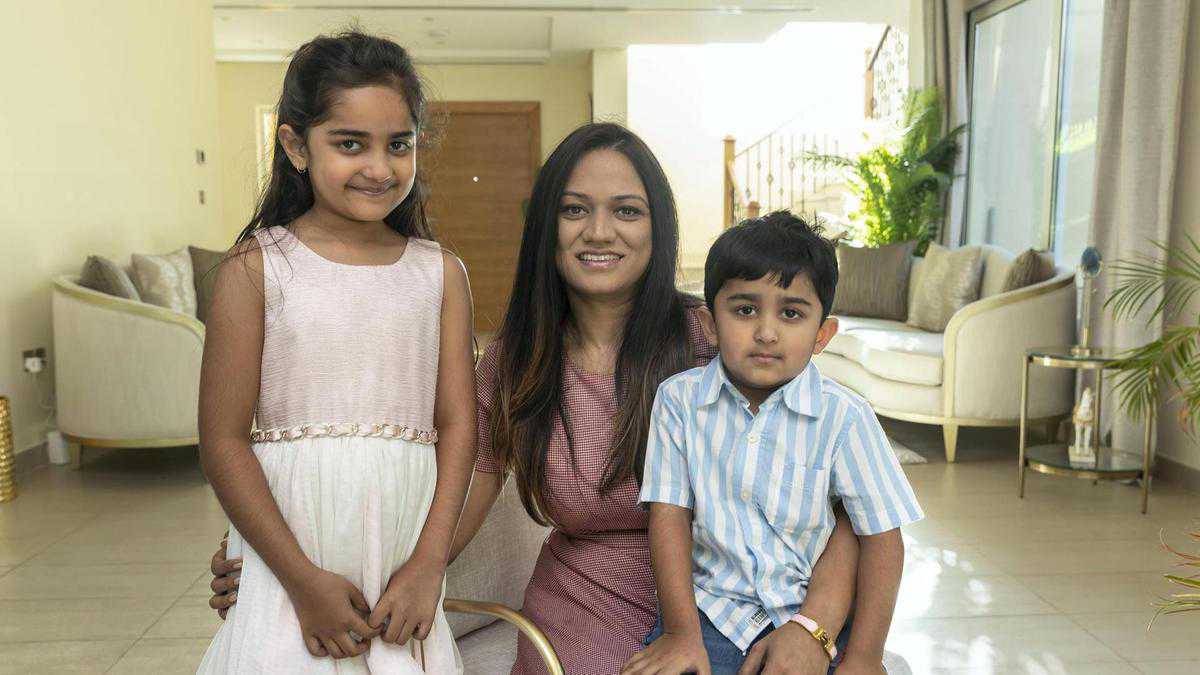How families in the UAE can manage childcare costs
17 January, 2021

Raising a child can be an expensive exercise for most parents, with childcare costs accounting for a major chunk of household budgets. Even before factoring in school fees, working parents in the UAE pay a substantial amount to either nurseries or nannies to provide for their toddlers.
About 80 % of families in the UAE spend between 5 % and 25 % of their household income on the children’s education, according to a 2019 study by Dubai-based consultancy Education Intelligence Group and listings portal Property Finder, which polled 3,000 parents.
Insurance company Zurich also found in a 2017 study that educating a kid in the UAE from preschool to university can cost about Dh1 million.
Shruti Sayed, a working mother of two children aged 3 and 6, chosen a nanny instead of a nursery because she was unsure about the amount of attention they might receive. Cost was another factor that influenced her decision.
“A [nursery] could have cost me between Dh4,000 to Dh5,000 monthly, whereas hiring a nanny via an agency cost me Dh3,500 in 2014,” she tells The National.
Although Ms Sayed primarily chosen a nanny who didn't stick with them, the family decided three and a half years ago to sponsor a live-in, full-time nanny because they needed more flexibility.
Visa sponsorship charges for the first year, like the refundable deposit, are usually between Dh8,000 and Dh9,000, while visa renewal costs range between Dh5,000 to Dh6,000 in the second year, says Ms Sayed.
Aside from a monthly earnings of Dh2,500, the family also provides an gross annual ticket allowance, paid leave of 1 month, medical health insurance cover, an gross annual bonus and food, in addition to meeting charges for miscellaneous items such as for example shampoo and skincare products.
“All these costs come up with, we spend between Dh3,500 to Dh4,000 on the nanny every month,” says Ms Sayed.
However, the family manages to save lots of despite the price of childcare. Ms Sayed, who handles the operations and sales side of the family’s investment migration consultancy, makes a monthly budget of their income and expenses and uses programs such as for example Spending, Paymaster and Zoho to keep tabs on finances.
“If the expenses are too high in a specific month, then we lessen leisure costs such as for example shopping or dining out,” she says.
Ms Sayed says she and her husband save 25 % of their income every month.
Residents that opt for full-time nannies may also proceed through Tadbeer, an initiative of the Ministry of Human Resources and Emiratisation that handles all domestic and household workers, including nannies.
“You can hire a nanny directly from Tadbeer. However, costs can vary in one service centre to some other, so it is most beneficial to look around to look for a package that works best for you,” says Angelica Robinson, leader of CloudNine Kids, a childcare and babysitting company.
“Alternatively, for those who have found a nanny through recommendation, you can arrange the visa through them.”
Tadbeer requires a payment towards a nanny’s wage for wage protection purposes and the family pays the total amount of the salary right to the nanny. The price is around Dh10,000 for a two-year visa and covers medical ensure that you Emirates ID service fees and health cover.
Families in the UAE typically pay a full-time nanny between Dh2,000 and Dh4,000 a month, depending on the amount of experience, qualifications and if the nanny lives with them, Ms Robinson says.
“For live-in nannies, they are able to earn between Dh2,000 and Dh3,000 monthly, with their own room and food provided," she says.
"For live-out nannies, they typically earn between Dh3,000 and Dh4,000 monthly, including food, accommodation and transport costs. Whether you have hired a live-in or live-out nanny, it really is legally your responsibility to provide the visa and cover all employment costs.”
Nannies have entitlement to thirty days of paid gross annual leave, a return flight ticket home after two years (many families provide this yearly) that may cost up to Dh3,000, based on the destination and enough time of year, along with food at home or an allowance for groceries around Dh300 to Dh400 per month, according to Ms Robinson.
“Some families also offer extra time off for public holidays and a gratuity or end-of-service benefits. However, this is simply not mandatory.”
CloudNine Kids provides families with part-time qualified nannies who do not desire to be burdened with the hassle of employment and visa costs.
Packages on a live-out basis for eight to 12 hours of work a day start from Dh1,920 weekly or Dh6,720 per month while daily rates are from Dh53 one hour for at the least four hours.
Zena Daher, a Lebanese project manager with a retail company in Dubai, hired a part-time nanny to provide for her daughter, Tiana, 4, after school.
Although her daughter has attended a nursery since she was six months old, the closure of preschools in February because of Covid-19 forced Ms Daher to hire a nanny.
She pays her part-time nanny Dh2,500 per month for approximately five hours' work a day.
Source: www.thenationalnews.com
TAG(s):
